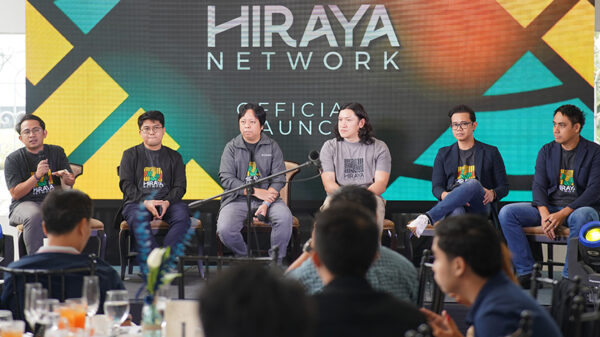New research from Twilio, the customer engagement platform that drives real-time, personalized experiences for today’s leading brands, reveals that in spite of initial skepticism around the phase-out of third-party cookies, marketers in the Philippines and the rest of APAC are now more welcoming of this imminent shift as they acknowledge the opportunity of building even greater trust through the use of other data sources, particularly zero and first-party data.
Specifically, 94% of marketers in the Philippines agree that the death of third-party cookies could lead to higher use of zero-party data, those that are directly and voluntarily shared by customers – which are potentially more valuable for marketers. Moreover, 96% of marketers in the region believe that phasing out third-party cookies can help strengthen trust in advertising among consumers in the long run.
Twilio’s When Consumers Control Data: How to Build Trust and Succeed in the New Digital Era explores the long-term implications of the cookieless future as shaped by the changing consumer preferences and expectations around data sharing. The report, released on the back of The Consumer Data Revolution in Asia Pacific report, includes findings from 600 marketers in APAC-based organizations across Singapore, Hong Kong, Australia, the Philippines, Indonesia, and Japan.
Zero is the new hero in the third-party cookie sunset
Considered a staple in online advertising for decades, third-party cookies have fueled skepticism in recent years as high-profile breaches shed light on data privacy concerns. Based on The Consumer Data Revolution in Asia Pacific report, 40% of Filipino consumers said they will lose trust in a brand if it doesn’t disclose its use of cookies and allow them to opt out, signaling a strong expectation of transparency.
Amid mounting regulatory and consumer pressure for better control and transparency around data sharing, major web browsers have phased out support for third-party cookies, with Google following suit by 2024. While this has led to an initial panic in an advertising industry that has become cookie-reliant, marketers in the region are slowly realizing how new methods of collecting and using data can potentially build stronger consumer trust, with 86% of organizations in the country advocating consumer data privacy and welcoming the phasing out of third-party cookies. Additionally, marketers in the Philippines reported the highest instance of decline in the quality and depth of personal information obtained from third-party data sources (94%) – among the factors that have led many to start incorporating zero and first-party data in their marketing strategies ahead of the third-party cookie sunset.
Of particular value among marketers is zero-party data – which customers intentionally and proactively share through polls and other direct feedback avenues – as this allows brands to customize marketing efforts based on each consumer’s preferences and motivations; improve services through consumer feedback on issues; and strengthen relationships by creating a better sense of trust.
Based on Twilio’s study, 94% of marketers surveyed in the Philippines are already collecting zero-party data, primarily through social media polls (73%), surveys (67%), and online registrations (67%), and this is a step in the right direction, given increased consumer expectations around consent and transparency.
86% of organizations in the Philippines believe first-party data is more useful than third-party data, given inadequate visibility over third parties’ data safeguards, security policies, and procedures. Unlike zero-party data, which consumers voluntarily share with brands, first-party data is passively being collected as customers interact with an organization’s owned channels to expand or nurture their existing customer base. 94% of marketers already have at least a basic understanding of the positive value of first-party data — among which include targeting the right customers, providing more accuracy, flexibility, and control, and better compliance with local data privacy laws.
Rethinking the attribution model
While 55% of organizations in the Philippines feel more prepared to ride off to the third-party cookie sunset than they were in 2021, there remains a transition gap toward meaningfully using their zero and first-party data. The most pressing challenges in data collection among marketers in the Philippines are twofold: the process of consolidating data from various systems and platforms, and the reluctance of consumers in the Philippines to share personal data. These challenges necessitate a more refined approach to the overall customer experience with a brand’s touchpoints.
Based on The Consumer Data Revolution in Asia Pacific report, 64% of consumers in the country expect clear and understandable information about how their data will be used to increase their trust in brands, a sentiment higher than in any other country in Southeast Asia. When these expectations on data privacy and transparency were not met, 46% of consumers in the Philippines were found to have stopped purchasing from a brand.
Overall, consumers in the Philippines tend to favor personalized experiences, with the majority (89%) believing that personalization adds value to their online experiences. They are also more likely to allow cookies if this means websites can better remember their preferences, with 53% of consumers in the Philippines comfortable with receiving an email after leaving an item in their online cart.
As brands’ focus shifts from personalization to individualized customer engagement, the marriage of zero and first-party data will arm marketers with new capabilities to become orchestrators of the brand experience. With Philippine consumers ranking highest in APAC (92%) in their willingness to share more information with trusted brands, transparent communication, responsible consumer data usage, and consistent value delivery throughout the customer engagement lifecycle will be the way forward.
“In the new consumer data revolution, it is critical that businesses rethink their approach to data to drive more impactful customer engagement. Trust is now the underpinning factor for success with the Filipino consumer, so brands need to be more transparent in communicating how they collect and use data to unlock meaningful value” said Nicholas Kontopoulos, Vice President of Marketing, Asia Pacific & Japan, Twilio.
Twilio’s When Consumers Control Data: How to Build Trust and Succeed in the New Digital Era report can be downloaded here.








































































































